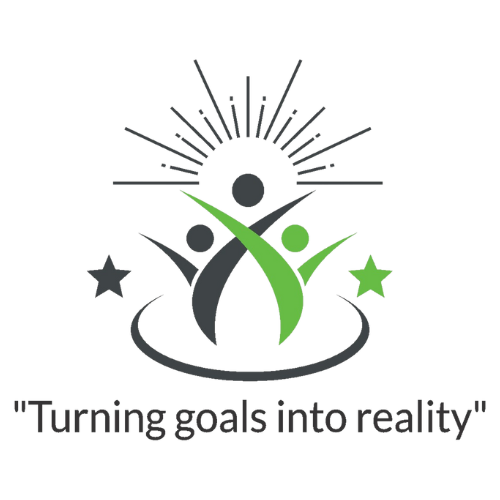How to Improve Your Soft Skills in 2025

Top Communication Skills Every Professional Needs in 2025
July 7, 2025
How to Answer Interview Questions with Confidence in 2025
July 7, 2025Introduction
In 2025, the job market isn’t just about what you know—it’s about how you interact, adapt, and lead. As automation and AI continue to reshape the workplace, soft skills have become the true differentiator in hiring decisions. A staggering 91% of employers now rank soft skills as equally important—or even more important—than technical expertise.
How to Improve Your Soft Skills in 2025, by Sanjeev Bhutani, explores the essential human skills—communication, emotional intelligence, adaptability, and leadership—that will define success in the modern workforce. Mastering these skills is no longer optional; it’s the key to staying relevant and leading with impact.
Why Soft Skills Matter in 2025
Automation may be on the rise, but empathy can’t be programmed. According to LinkedIn’s Future of Work report, soft skills are becoming the “new hard skills” of the modern workforce.
Key reasons why soft skills are vital:
- AI can’t replicate emotional intelligence or creativity
- Collaborative remote environments require better communication
- Problem-solving and adaptability fuel innovation
- Employers report 89% of new hires struggle with interpersonal capabilities
In a tech-driven job market, it’s your human-centric skills that keep you competitive.
Step-by-Step Plan to Improve Your Soft Skills in 2025
Step 1: Choose Your Focus Skill
Start by selecting 1–3 soft skills you want to enhance. Use feedback from coworkers or performance reviews, or self-assess your current gaps.
Popular 2025 focus areas:
- Communication
- Emotional Intelligence (EI)
- Leadership & Influence
- Adaptability
- Problem-Solving
Step 2: Use Deliberate and Experiential Practice
Improving soft skills requires intentionality. Practice consistently in realistic environments.
Try this:
- Deliberate practice: Focused sessions on a micro-skill like “active listening”
- Experiential learning: Join hackathons, volunteer for group presentations, or participate in role-playing workshops
Step 3: Leverage Learning Platforms
2025 offers a wealth of digital resources to sharpen your soft skills:
- Online courses: LinkedIn Learning, Coursera, Skillshare
- Interactive apps: EI training apps, public speaking simulators
- Podcasts and YouTube: Tune into shows about leadership, communication, and productivity
💡 Pro Tip: Use playlists or learning paths to stay consistent. Create a “Skill-of-the-Month” focus for better results.
Step 4: Get Feedback and Coaching
Feedback is the cornerstone of progress. Don’t just rely on self-assessment.
Options include:
- Peer feedback loops: Weekly feedback from teammates
- Mentorship programs: Ask mentors to assess your growth
- Professional coaches: Many specialize in soft skills coaching, particularly leadership and emotional intelligence
Step 5: Apply, Reflect, and Iterate
Growth happens in the field—not in theory.
- Apply your new skills in daily conversations, meetings, and projects
- Reflect weekly in a journal: What went well? What needs improvement
- Iterate your approach—focus on a new skill or go deeper on one
This cycle helps turn soft skills into natural habits.
Step 6: Track Your Progress
Use simple tools to stay accountable:
- Set SMART goals (e.g., “Practice assertive communication 3 times/week”)
- Use tracking apps (Notion, Trello, Habitica)
- Record “before and after” moments via audio, video, or written notes
As you reflect on your journey, you’ll find proof of growth—and material for interviews or performance reviews.
Mastering Soft Skills: Practical Ways to Build Them
We often hear that soft skills make or break careers, but most professionals struggle with where to begin. The good news? You can actually build these skills through small, consistent habits. Here’s a simple breakdown of how to practice them in real life:
🗣 Communication
Strong communication isn’t just about speaking well—it’s about connecting.
- Join a public speaking group like Toastmasters to polish your presentation skills.
- Record yourself while giving a talk and replay it—you’ll quickly notice areas to improve, whether it’s tone, pace, or clarity.
- Practice active listening by rephrasing what someone has said before you respond. This shows respect and ensures you’ve understood them correctly.
- Expand your vocabulary and confidence by reading widely and engaging in discussions.
🔄 Adaptability
Change is constant at work, and adaptability is what helps you thrive.
- Volunteer for rotating roles or projects outside your comfort zone—it stretches your skills.
- Cross-train with another department to see challenges from a new perspective.
- Stay open to learning new tools, apps, and software. It keeps you ahead of the curve.
- Most importantly, adopt a growth mindset: welcome feedback instead of fearing it.
💡 Emotional Intelligence (EI)
Your ability to understand and manage emotions—both yours and others’—is a game changer.
- Keep a daily journal to reflect on your reactions and emotional triggers.
- Practice mindfulness or meditation, even if it’s just for 10 minutes a day.
- Pay attention to non-verbal cues—sometimes, body language says more than words.
- Ask for honest feedback from colleagues on how you come across in team settings.
🧩 Problem-Solving
Problem-solvers are always in demand because they bring clarity where others see confusion.
- Challenge your brain with puzzles, riddles, or strategy games like chess.
- Join brainstorming sessions or innovation challenges to sharpen creative thinking.
- Volunteer for projects that need process improvement—it’s a great way to learn hands-on.
- Use frameworks like the “5 Whys” to dig deeper into the root of problems.
🌟 Leadership
Leadership is not about titles—it’s about influence and responsibility.
- Step up to lead group projects, no matter how small.
- Offer to mentor or guide a junior colleague—you’ll learn patience and coaching skills.
- Study different leadership styles by reading, observing, or even attending leadership workshops.
- Start small: run a meeting, organize a team activity, or take charge of a small initiative. Over time, these experiences shape you into a strong leader.
Why Soft Skills Matter in Your Corporate Journey

Practicing soft skills alone isn’t enough—what truly makes the difference is learning how to implement them in your daily professional life. Soft skills, when applied the right way, become powerful tools that can shape your career just like weapons shape a warrior.
This is where the role of a soft skills and corporate trainer becomes crucial. With the right guidance, you can learn:
- How to communicate with confidence and clarity.
- How to carry yourself with a professional and presentable personality.
- How to step into leadership roles and develop the qualities of an effective leader.
- How to use emotional intelligence, adaptability, and teamwork to excel in your career.
Under the mentorship of Sanjeev Bhutani, you’ll discover how to bring out the best version of yourself at the workplace—whether it’s speaking in meetings, leading teams, or making a lasting impression in the corporate world.
If you’re based in Delhi, Mohali, Chandigarh, or Panchkula, this is the right time to take charge of your growth. With expert guidance, you can bring positivity, transformation, and success into your career journey
FAQs
🔹 Q: What is deliberate practice for soft skills?
💬 A: Deliberate practice means training a specific aspect of a skill—like giving feedback or presenting—with focus, repetition, and real-time feedback.
🔹 Q: How long does it take to improve a soft skill?
💬 A: Typically, consistent practice over 3–6 months yields measurable growth, especially with feedback and application.
🔹 Q: Can AI help improve soft skills?
💬 A: Yes! AI tools now simulate real conversations, provide public speaking feedback, and help track learning goals with insights.
🔹 Q: How do I showcase improved soft skills on a resume?
💬 A: List accomplishments that reflect soft skill use.
Example: “Led a 5-member team project that exceeded deadlines by 20%—praised for communication and leadership.”
Conclusion
Improving your soft skills in 2025 isn’t just a “nice-to-have”—it’s a necessity for career success. The path is clear: choose a skill, practice it deliberately, seek feedback, and track your progress. How to Improve Your Soft Skills in 2025 starts with commitment and consistency. Over time, these human-centered abilities become second nature—and will set you apart in a competitive, rapidly evolving job market.

📞 Connect with Us
Ready to Transform Your Career in 2025?
Take the next step in mastering soft skills that matter—communication, leadership, emotional intelligence, and more. Whether you’re a student, professional, or team leader, Sanjeev Bhutani offers proven strategies to help you grow with confidence.
🔗 Get in Touch Today
👤 Coach: Sanjeev Bhutani
📱 Call/WhatsApp: +91-62800 77678
📧 Email: connect@sanjeevbhutani.com
🌐 Website: www.sanjeevbhutani.com
